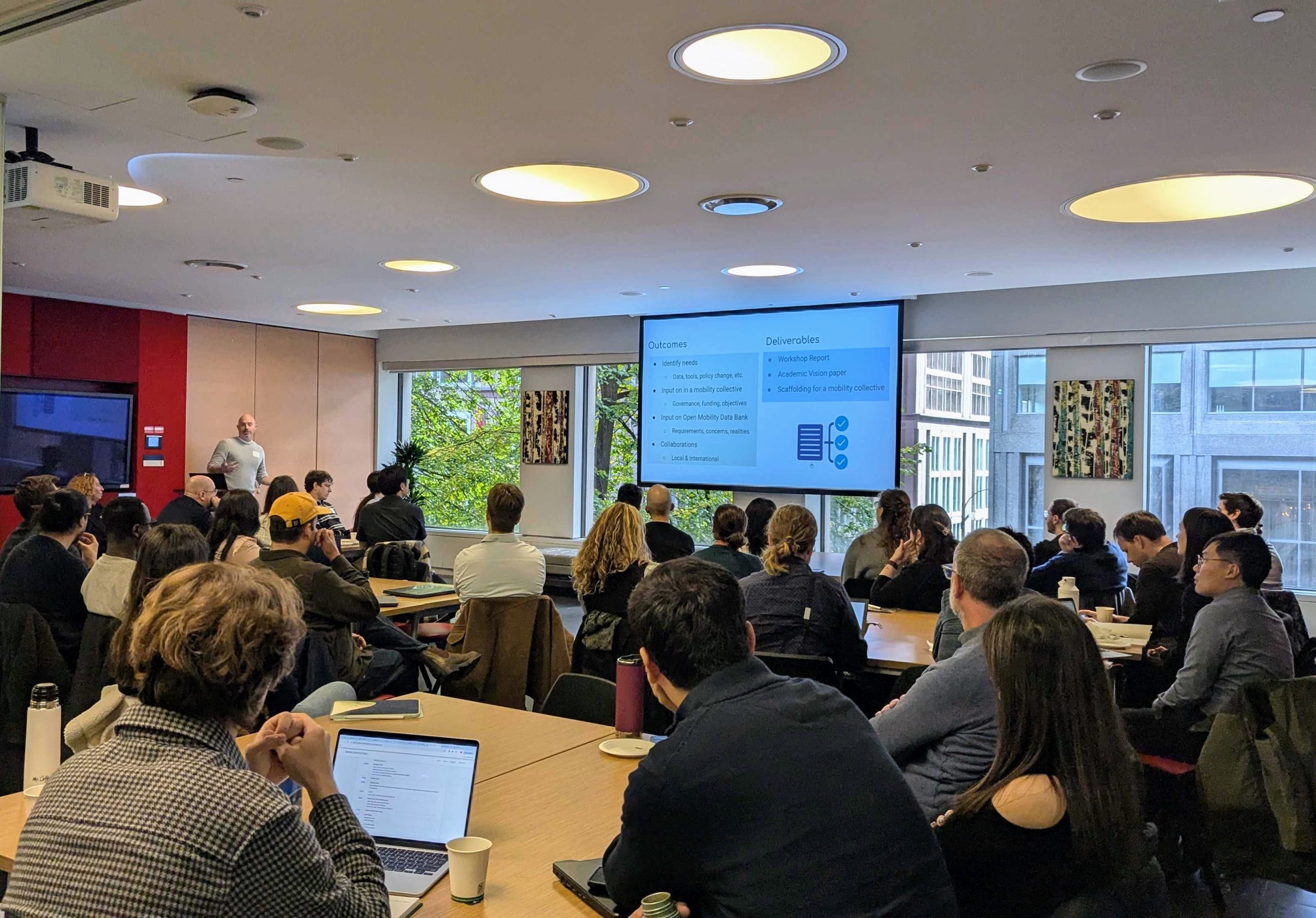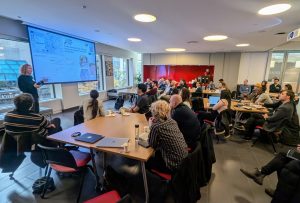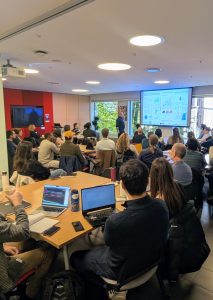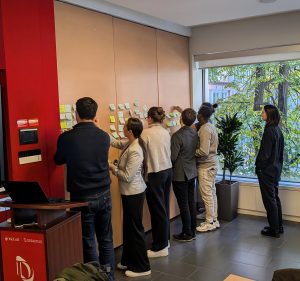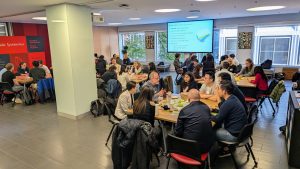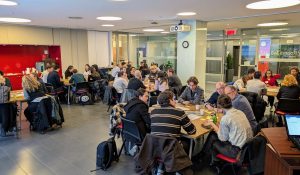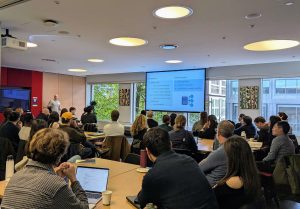On October 27, the lab hosted the second Data-Driven Mobility Analytics (DDMA) Workshop, bringing together 48 active participants from Montreal, elsewhere in North America, and Europe. This event followed the initial DDMA workshop held at Aalto University in Espoo, Finland earlier this year, continuing our shared effort to strengthen an international community around open, sustainable, mobility analytics.
The Montreal workshop was co-organized by Prof Grant McKenzie, Henrikki Tenkanen (Aalto University, Finland), and Marina Toger (Uppsala University, Sweden). Together, they built upon discussions initiated in Finland on developing shared infrastructures – such as an Open Human Mobility Data Bank and a Mobility Collective – to support equitable, transparent, and policy-relevant mobility research.
The day featured spotlight talks from:
-
Steven Farber (University of Toronto) on the Mobilizing Justice partnership
-
Milad Malekzadeh (University of Helsinki) on the OpenGPS/MobilityBank platform,
-
Tim Chevrier (INRS) on data collection and analysis for the CapaCITY/É project, and
-
Kevin Manaugh (McGill University) on the CurbCut Montreal platform.
These talks got the ideas flowing and were complemented by 29 lightning talk presenters who shared 2-minute, rapid-fire insights spanning topics from public health impacts of mobility to shadow fleet ship movements, and from urban micromobility data integration to AI-driven transportation policy tools.
The “heavily lifting” portion of the workshop was the World Café session: Three 25-minute rounds of directed small-group discussions around:
-
Data: Priorities & Opportunities
-
Tools: Needs & Pathways
-
Community: Infrastructure & Collective
Participants covered their tables and walls with colorful sticky notes, identifying barriers, opportunities, and shared needs across domains. The organizing team has just started sorting through all the ideas in preparing the workshop report.
The outcomes from DDMA #2 will feed into two key deliverables: (1) a workshop report synthesizing the discussions and ideas from Montreal, and (2) an academic vision paper outlining a road-map for a global mobility collective and open data infrastructure. Together, these will form the scaffolding for an emerging mobility collective that supports collaboration across disciplines, sectors, and continents.

